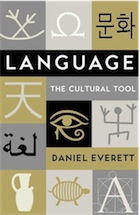Recently, LLAS team has been reviewing models of informal language learning or ‘language cafes’. A few years ago LLAS led the EU funded Language Café project to set up language cafes across the UK and Europe (www.languagecafe.eu). The model of the language café caught the attention of a company in Athens who are leading an EU project to set up informal language learning opportunities for immigrants (http://www.llas.ac.uk/projects/METIKOS).
What did we discover? Firstly, that in the UK, there is a real appetite for conversing in another language in an informal setting. Participants in the cafes that we visited in Southampton welcomed the friendly and supportive environment where they could meet new people and test out their conversation skills in another language and all for the cost of a cup of coffee!
Secondly that a number of cafes have run for a few years , the success being partly due to the efforts of the facilitator but also as a result of group members sharing responsibility for welcoming new people, steering the discussion and organising additional events.
Thirdly, that there are a number of models of ‘language café’ out there. In Edinburgh, Yakety Yak (www.yaketyyak-languagecafe.co.uk/ )has been set up as a business venture ; a number of cafes are organised where the presence of an experienced tutor is guaranteed and where participants pay for an hour’s conversation. And the Culture Box Language Café (culturebox.org.uk/activities/language-cafe-2/ ) runs every Saturday afternoon in Nottingham City Library. Participants are invited to say what language they want to learn and what language they can offer. And at the Tyneside Cinema in Newcastle, a foreign language film is shown followed by a discussion about the film in the target language (www.tynesidecinema.co.uk/learn/adults) .
Fourthly that, unsurprisingly, the appetite for language cafes also exists in Europe. We looked into the ‘café scene’ in France and Italy where there were a number of cafes in the major cities, some offering a number of languages, others offering just one. The information about the café in Dunkirk conjures up the spirit of many of the cafes we reviewed: ‘each week in a friendly atmosphere you can participate in discussions in the foreign language of your choice sitting comfortably with a drink in your hand. Based on the principles of free expression and exchange, the language café allows each person to choose their own topics of discussion. No set theme or obligation to attend, each person organises his evening as he wishes, immersed in an intercultural and intergenerational environment.’
Liz Hudswell
Assistant Director, LLAS







